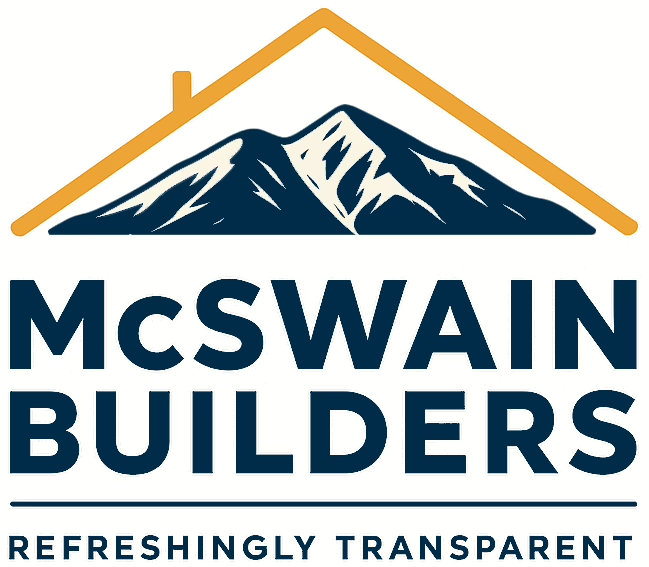Sample Deal Structure for a Cost-Plus Construction Contract:
Below is an example of how a cost plus deal structure works with sample assumptions:
- The actual cost of construction aka sticks, bricks and labor is $500,000
- The cost to manage the project is $2,000 weekly and the project duration is six months (6 months x 4.3 weeks/month x $2,000): $51,600
- McSwain Builders has agreed to a 15% GC fee (15% of total project cost): $80,805
- General Liability Insurance (2% of total project cost): $10,774
Total Contract Amount: $630,279
Change Orders
Very few projects are completed without at least a few changes to the original scope of work. When changes occur, the specific costs associated with the change order are estimated before the work occurs. The customer is then presented with a simple document identifying the change order and the cost(s) associated with the change. The customer is required to sign the change order and return that document to the Builder before work for the change order starts and/or before parts/materials are ordered. Builders markup change orders just like they mark up the cost of construction.
Here’s an example:
- Change from oak hardwood flooring to walnut hardwood flooring: $4,500
- GC Fee (15%): $675
- Insurance (2%): $90
Total cost of change order: $5,265
Additional budget for Project Management is sometimes added to the cost of a change order depending on the complexity of the change order and how subs, suppliers and overall schedule will be impacted. Assuming the change results in more time needed to complete the overall project than what was estimated on the original Project Budget, it is safe to assume that additional budget for Project Management will be added to the cost of the change order.
